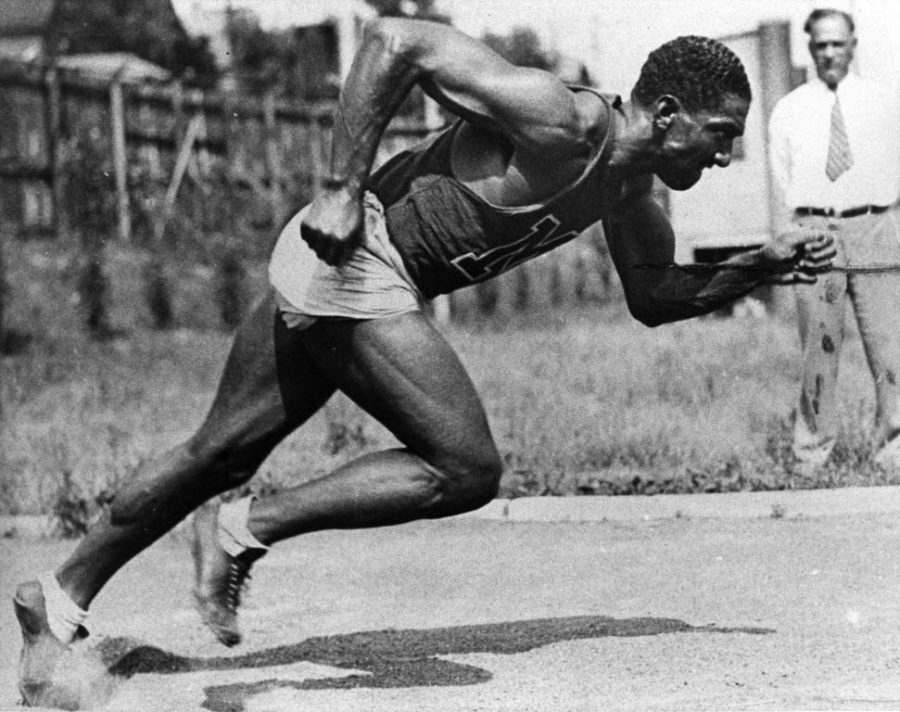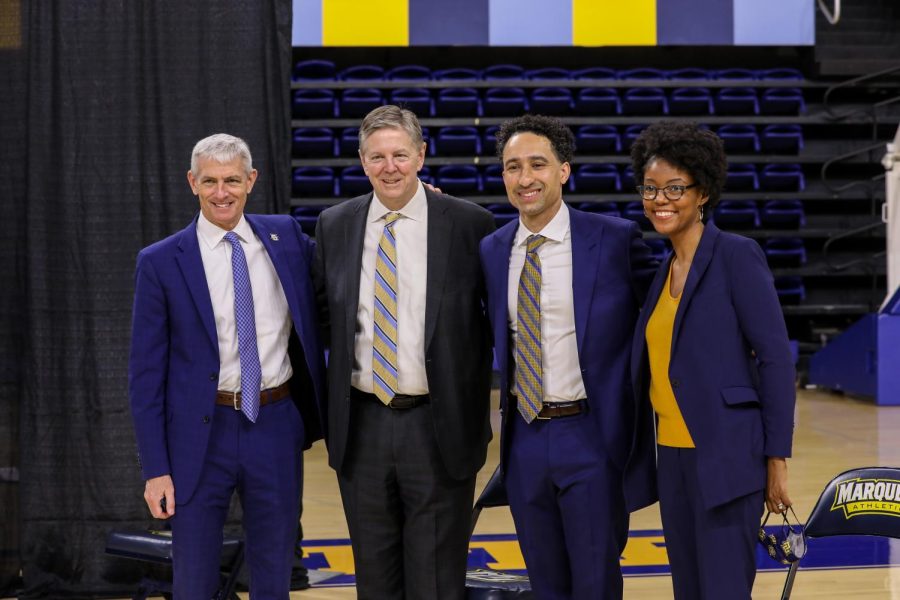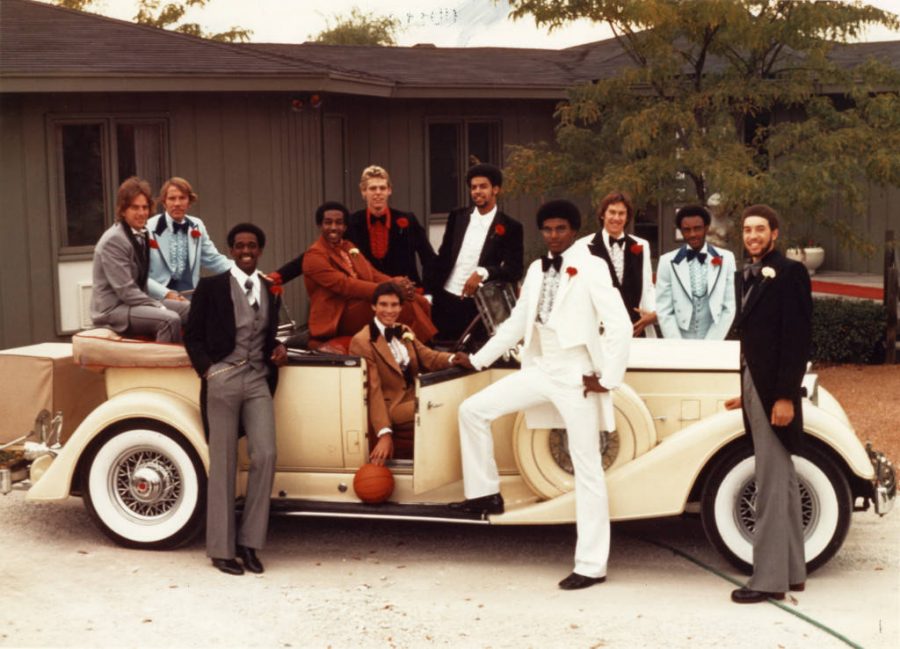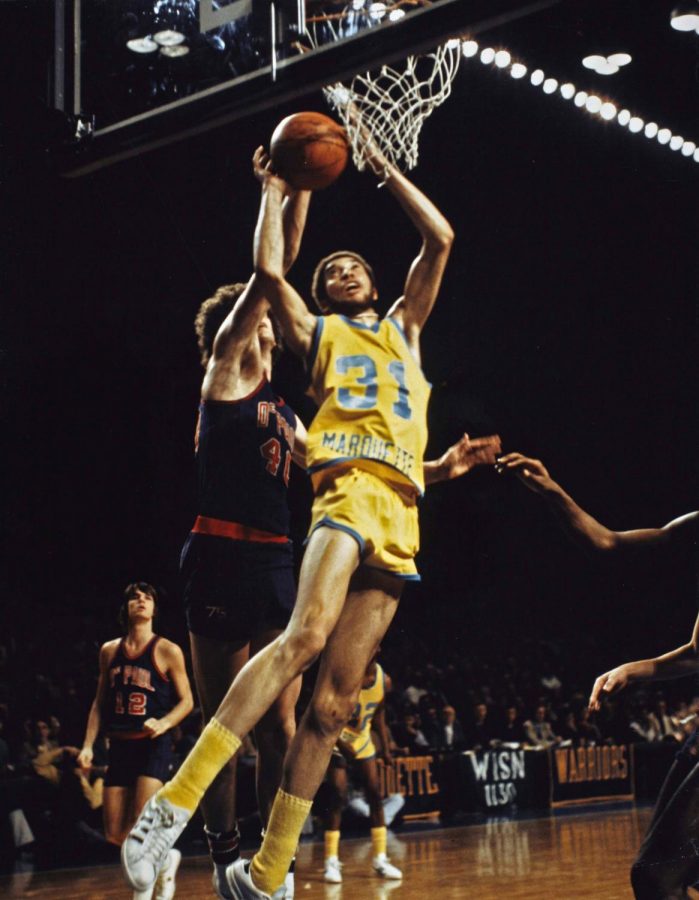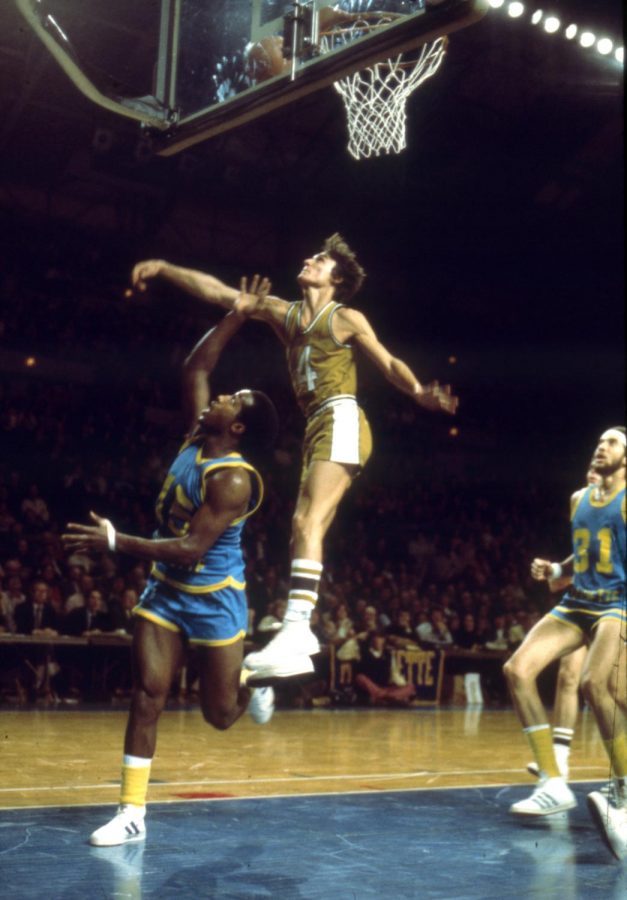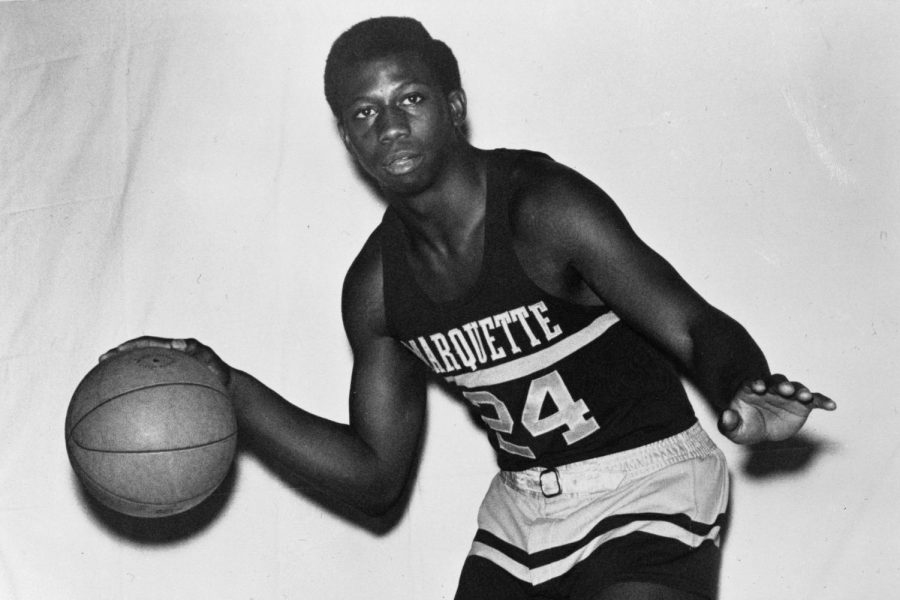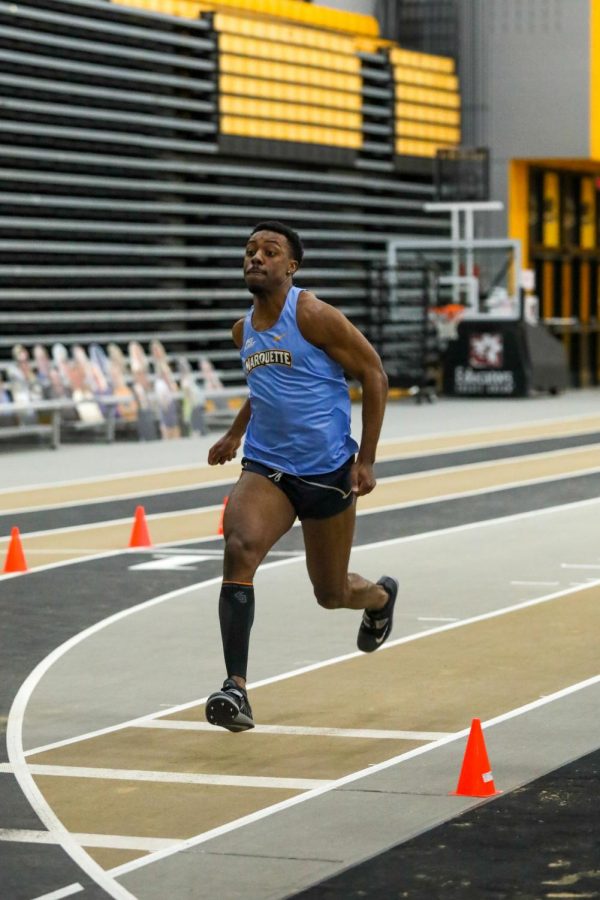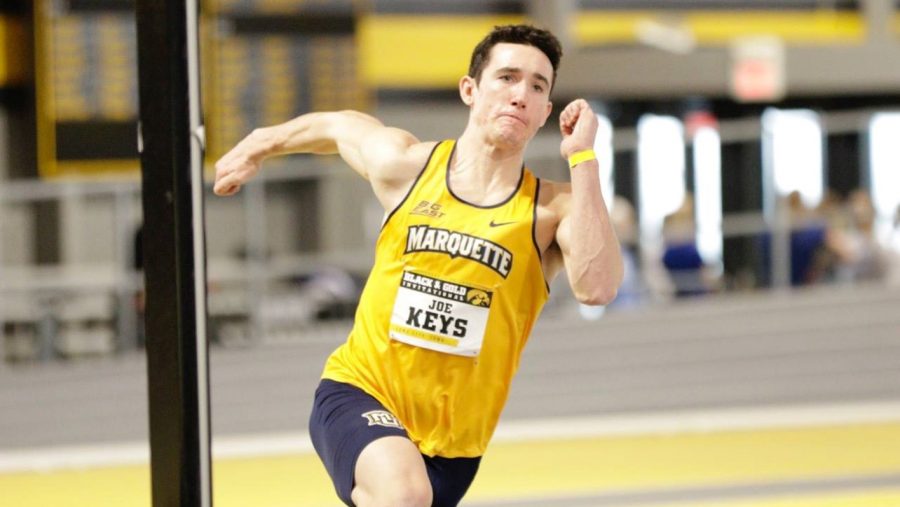Ralph Metcalfe not only set the bar for what he could do on the track, but also for what he did for fellow Black people in the community throughout his life and many years after his passing.
Born in Atlanta, Georgia, Metcalfe was one of America’s best sprinters during the 1930s, competing in several Olympic games while attending Marquette University as the school’s first Black student-athlete. At Marquette, he became the first man to win the NCAA 200-meter title in three consecutive years, as well as capturing the 100-meter dash record with countless occasions of 10.3 seconds.
While dominating the country on the track while at Marquette, Metcalfe also had his eyes set on the national stage, competing in the 1932 Olympics in Los Angeles, where he would receive a silver medal in the 100-meter dash and a bronze medal in the 200-meter dash.
According to his biography in the university archives on Marquette’s website, Metcalfe went on to compete in the following Olympics four years later in Berlin, where he again received a silver medal in the 100-meter dash, but this time also found gold in the 4 x 100-meter relay with the help of fellow American teammate and four-time gold medalist Jesse Owens. After four Olympic medals, Metcalfe’s professional track career would be finished, but it was just the beginning of his legacy.
After earning his bachelor’s degree from Marquette in 1936, Metcalfe went on to complete his master’s degree at the University of Southern California in Los Angeles shortly before entering the military service. Metcalfe then served in World War II and “was eventually awarded the Legion of Merit medal for his extraordinary acts and achievements throughout his service,” according to his biography on Marquette’s website.
After his service, Metcalfe won four sequential campaigns for a seat at the U.S. House of Representatives, where he represented Illinois’ 1st Congressional District. During his political career, he helped establish the Congressional Black Caucus, which is made up of many Black members of the United States Congress. Metcalfe was also a pioneer in establishing Black History Month, which is now celebrated every year in February.
Metcalfe passed away in 1978 while running for a fifth term at the age of 68. From being one of America’s best sprinters during his time to becoming one of the most inspiring leaders in the African American community, Metcalfe will always be remembered as one who sought to “be the difference.”
Throughout his life, Metcalfe fought for what he believed in and left an impact on the Black community, who are still fighting for social justice today through the Black Lives Matter movement that began in 2013.
After the recent death of George Floyd and global attention brought to today’s race relations and police brutality in the United States, BLM continues to follow in Metcalfe’s footsteps and fights for the rights of Black people and for change in the world.
Almost 20 years after Metcalfe roamed around Marquette’s campus, Marquette basketball’s first Black player Ralph Wilson joined the team, playing from 1951-54.
Wilson helped lead Marquette to the program’s first postseason championship when the team captured the National Catholic Invitational Tournament title in 1952.
Wilson paved the way on the court for a breakthrough of other notable Black Marquette basketball players including George Thompson, Jim Chones and Maurice “Bo” Ellis.
Chones, who was a consensus All-American in 1972, led Marquette to a 28-1 record in 1971 and an NCAA Tournament berth in the same year.
Thompson played from 1966 to 1969, and was another Marquette basketball legend, holding Marquette’s all-time scoring record until 2009, when it was broken by Jerel McNeal. The record was surpassed again in 2019 when Markus Howard scored an all-time record 2,761 career points at Marquette.
Although Howard holds the all-time scoring record, Ellis is arguably responsible for Marquette’s only NCAA Championship in 1977. Ellis, a Marquette basketball legend, was MVP in 1975 and 1977 after leading his team to a title under the helm of coach Al McGuire. Ellis would go on to play three seasons in the NBA and then would make the trip to Europe to finish his career.
Marquette basketball would not look the same if it were not for the efforts of Wilson, Chones, Thompson, Ellis and many others who broke through the race barrier on the court and the track.
Almost 90 years after Marquette’s first Black athletes lived on the university’s predominantly white campus, Marquette’s Black student-athletes today are still facing some of the same hardships.
“Growing up, I didn’t understand why I wasn’t being treated fairly like other kids,” Marquette track and field senior jumper Samuel Johnson says. “I usually had my parents educate me on things that were happening to me just because the color of my skin.”
Johnson grew up in Mooresville, North Carolina, where he says he would receive less playing time than some of his other teammates just because of his skin color. He ended up transferring high schools because of it.
“The most important thing was being aware of what was going on, and just being able to talk to my family about everything was reassuring,” Johnson says. “I always thought to myself that I’ve mentally got to be stronger, which will prepare me for any hardships I face.”
Johnson did not let any difficulties or setbacks growing up hold him back in his collegiate career. He was a two-time All-State honoree and a two-time long jump state champion at Statesville Senior High School in Statesville, North Carolina.
Since coming to Marquette, Johnson has found himself in the record books, as he owns Marquette’s indoor 60-meter dash record with a time of 6.80 seconds, and is also in the top five for indoor and outdoor triple jump.
Johnson says he thinks social media has hurt social tension over the years regarding race.
“In today’s world you see a lot of fake news that tries to separate us, but I believe we need to come together in times like these if we want to make change,” Johnson says.
Meanwhile, Marquette junior and track and field jumper Jefferson Osunkwo has a different perspective.
“Social media has done a little bit of both when it comes to bringing awareness to the topic and what we’re fighting for,” Osunkwo says. “I think it allows everyone to state their opinions and help build relationships by coming together with one another.”
Osunkwo, a Milwaukee native, attended South Milwaukee High School, where he earned all-state honors all four years in the long and triple jump.
Growing up, Osunkwo says he was inspired by his dad, who helped him get to where he is today. In September of 2020, Osunkwo was named the Baird Blue and Gold Student-Athlete of the Month for his acts as a valuable leader and participant through social issues such as diversity, equity and inclusion with his peers across Marquette and the BIG EAST Conference.
“I believe the most important thing we can do is to just listen to each other, as it will help spark new ideas and bring us all together and hopefully bring change to our world,” Osunkwo says.
Throughout Metcalfe’s life, he used his platform to help shine spotlight on issues of race, such as the when he helped establish the Congressional Black Caucus and Black History Month. Today, many athletes around the world use their platforms for the same purpose: to make change.
For example, NBA superstar LeBron James has given back to his community and used his platform to speak about social issues going on around the world throughout his whole career. One of James’ biggest accomplishments is opening the “I Promise School” in his hometown of Akron, Ohio, which is specifically aimed for “at-risk” children in the Akron area to ensure a stable learning experience.
“Looking at what Lebron has done for his community is just so inspiring, and as an athlete who has a platform myself, I need to use it to talk about what’s going on in the world and try to make change with it,” Johnson says.
That is exactly what many Marquette student athletes did on September 4, 2020, as students and student athletes alike used their platforms by participating in a social justice march throughout campus in support of the Black Lives Matter movement.
In a time of powerful social tension around the world, it’s safe to say Metcalfe would be proud to see the legacy that he left behind has sparked the movement of many speaking up for what they believe in and being the difference.
This story is written by Sam Arco. He can be reached at sam.arco@marquette.edu or on Twitter @sam_i_am119.
https://soundcloud.com/marquette-radio/journal-setting-records

